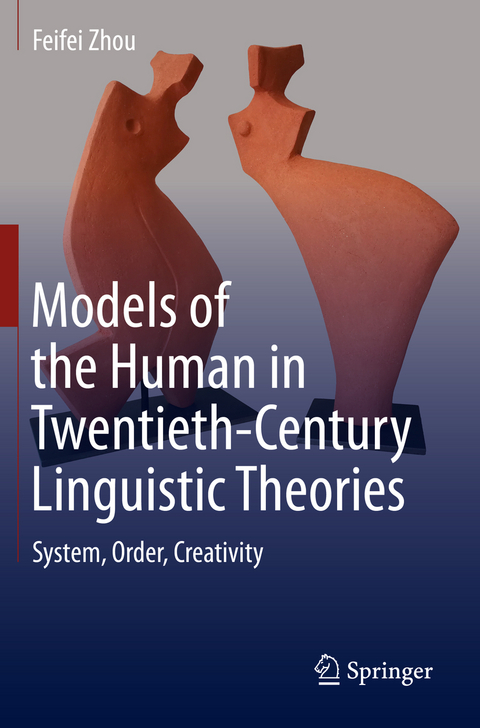
Models of the Human in Twentieth-Century Linguistic Theories
Springer Verlag, Singapore
978-981-15-1257-5 (ISBN)
This book provides a refreshingly new perspective for investigating linguistic texts, which foregrounds models of the human. It presents a close reading of major linguistic theories in the twentieth century with a focus on three main themes: linguistic system and the individual speaker; social order; and linguistic creativity. The examination of these three fundamental themes concerning language and human nature, on the one hand, provides a fine-textured exposition on the implicit and explicit models of human nature endorsed by major theorists; on the other, it reveals the methodological dilemmas faced by linguistics. In light of the fact that the importance of considering posthumanist ideas is increasingly being underscored today, both within and outside linguistics, this focus on the human makes the book highly topical.
Dr. Feifei Zhou is an Assistant Professor at the Department of English, Lingnan University, Hong Kong, where she teaches Sociolinguistics and Psycholinguistics. In 2014, Zhou received her Ph.D. in Linguistics and the History of Ideas from the University of Hong Kong. Her research interests include the history of linguistics, health discourses, and linguistic landscapes.
Chapter 1. Introduction.- Part I: System and the Individual Speaker.- Chapter 2. Sassure: Langue as an autonomous system.- Chapter 3. Bloomfield: A grammar system.- Chapter 4. Chomsky: System and the ideal speaker-hearer.- Chapter 5. Labov: Systemic variation and knowledge.- Chapter 6. Bucholtz and Hall: System and identity.- Chapter 7. Haugen, Mulhausler and Mufwene: System and language ecology.- Chapter 7. Conclusion to Section I.- Part II: Social Order.- Chapter 9. From Durkheim to Garfinkel: Social facts and social order.- Chapter 10. Garfinkel: Members' methods of producing order.- Chapter 11. Case Study.- Chapter 12. Sacks, Schegloff and Jefferson: Order in conversation.- Chapter 13. Social order, rationality and modernity.- Chapter 14. Pragmatics: Order in speech acts.- Chapter 15. Comparison of conversation analysis and speech act theory.- Chapter 16. Conclusion to Section II.- Part III: Creativity.- Chapter 17. Creativity, linguistics, the Skinner-Chomsky controversy.- Chapter 18. Comparing Chomsky, Skinner and Harris: How are human roles conceptualized.- Chapter 19 .Comparing Chomsky, Skinner and Harris: Thoughts on politics and human nature.- Chapter 20. Comparing Chomsky, Skinner and Harris: Thoughts on politics and human nature.- Chapter 21. Alternative theories: Creativity, metaphor, and everyday conversation.- Chapter 22. Creativity, machines and posthumanism.- Chapter 23. Conclusion to Section III.- Chapter 24. Conclusion.
| Erscheinungsdatum | 26.03.2021 |
|---|---|
| Zusatzinfo | 4 Illustrations, black and white; XI, 233 p. 4 illus. |
| Verlagsort | Singapore |
| Sprache | englisch |
| Maße | 155 x 235 mm |
| Themenwelt | Schulbuch / Wörterbuch ► Wörterbuch / Fremdsprachen |
| Geisteswissenschaften ► Philosophie ► Sprachphilosophie | |
| Geisteswissenschaften ► Sprach- / Literaturwissenschaft ► Sprachwissenschaft | |
| ISBN-10 | 981-15-1257-4 / 9811512574 |
| ISBN-13 | 978-981-15-1257-5 / 9789811512575 |
| Zustand | Neuware |
| Informationen gemäß Produktsicherheitsverordnung (GPSR) | |
| Haben Sie eine Frage zum Produkt? |
aus dem Bereich


